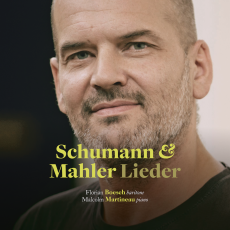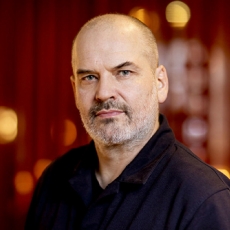Florian Boesch - Schumann & Mahler: Lieder - Audiophile Sound
Performance: 5
Given that Florian Boesch and Malcolm Martineau are two of the hottest lieder tickets in town it seems odd that this recital has taken almost exactly three years to appear having been recorded in November 2014 and it is also rather strange that any record label should think it acceptable to offer a programme lasting a mere 47 minutes. In terms of the quality of singing, as ever Boesch deploys an exceptionally large range of tonal and dynamic shading and as with his recent Hyperion Winterreise he appears to be in conversation with the listener, which makes these sound like live performances. As with so much of Schumann’s output Liederkreis consists of a series of short songs and in the first Boesch creates a beautifully moulded melodic line, in the more demonstrative Intermezzo his tone is powerfully focused, he dances his way through Waldesgespräch, spins an ultra-refined web of pianissimo sound in Die Stille and Martineau is equally eloquent, so this is an equal partnership not an accompaniment. And so it goes on, without any sense of artifice both artists highlight key words and phrases and bring the cycle to an extrovert end in Frühlingsnacht. In the Op. 98a songs one notes the richness of Boesch’s lower register and depth of feeling evinced in these late works. Mahler’s multi-faceted lieder make exceptional demands of any singer and you would have to go back to Janet Baker and Geoffrey Parsons (Hyperion, 1983) to hear the equal of these performances, where there is a sense of rapt concentration, acute emotional involvement and some of the most ravishing sounds you are ever likely to hear from a baritone. So great singing and playing, but pity about the playing time.
Sound:
Balance: 5
Inner balance: 3
Detail and clarity: 5
Dynamic range: 4
Sound-wise Linn chose Crear, a remote Scottish coastal venue that uses – amongst other things - a highly thought of bespoke wedding reception service to subsidises its arts work. Pictures of the premises show a long, narrow, high roofed hall that is still quite compact, but has far too much glass for a concert-hall, so it came as no surprise to hear that the reverberation time is too long for a lieder recital (the Wigmore Hall has a reverb time of only about 2 seconds) which means that Florian Boesch does have a tendency, especially in forte passages, to float somewhere in the middle of the image as opposed to being slightly in front of the piano. This is a pity because the piano is ideally balanced just to the rear of the speakers and as this 24bit, 192kHz sound the exceptionally wide tonal range and unique timbre of both players is very well presented. The dynamic range is also extended so you can hear all of Boesch’s variation from pppp to fff, there is plenty of presence and projection and is now usually the case no register is given undue prominence. Much to Linn’s credit, like Hyperion they have their own highly efficient download application, which further adds to the desirability of this release.


